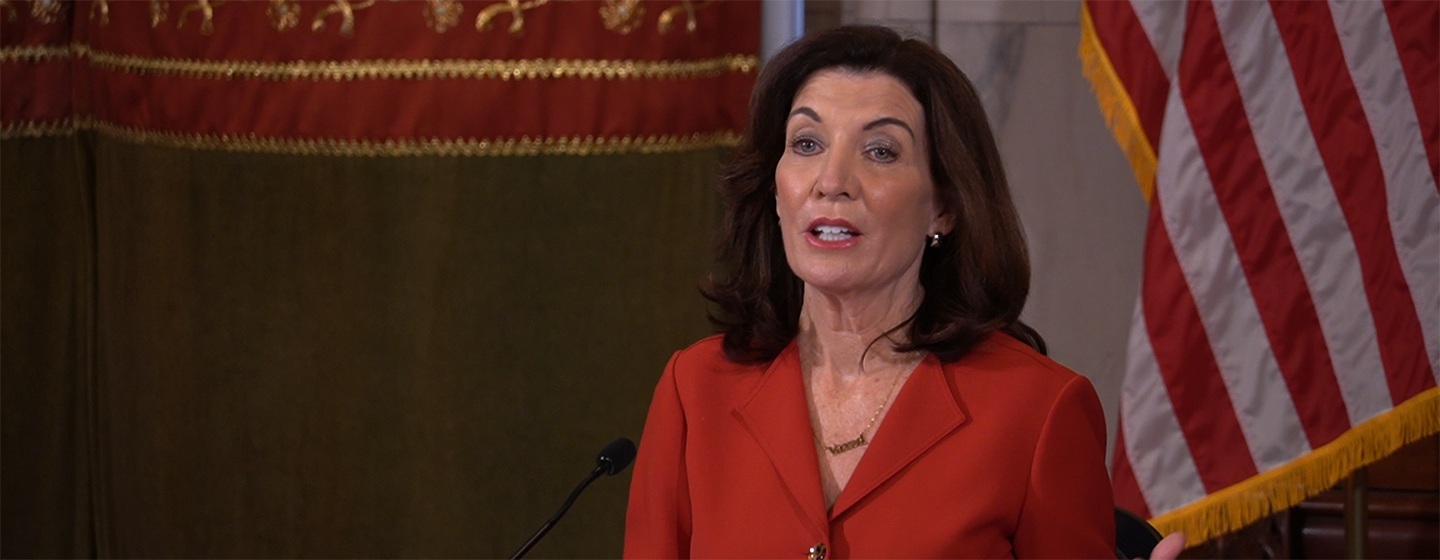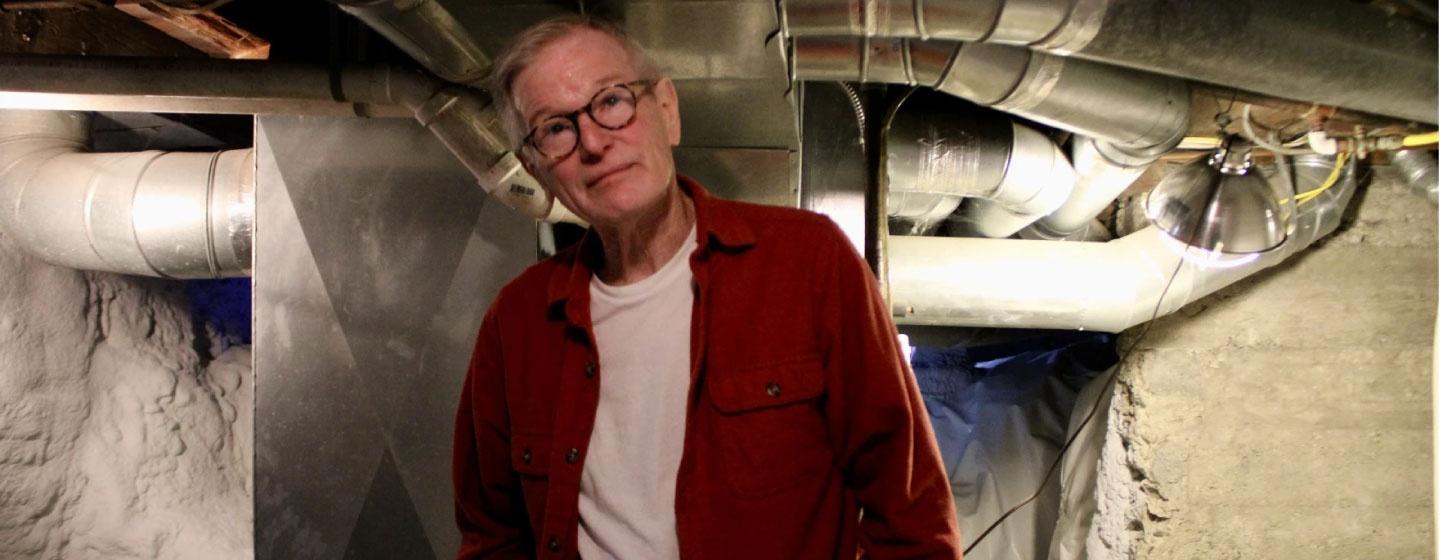New York Gov. Kathy Hochul Signs Climate Superfund Bill in What’s Seen as a National Milestone

Governor Kathy Hochul has signed the Climate Change Superfund Act into law, making New York the second state in the country to hold fossil fuel companies responsible for climate impacts.
The Climate Superfund law signed by the Democrat the day after Christmas establishes a Climate Change Adaptation Cost Recovery Program, intended to raise $75 billion over 25 years from oil and gas companies blamed for contributing to climate impacts like flooding and severe heat.
Environmental advocates and state legislators alike hailed the development.
Third Act Upstate New York climate activist Michael Richardson says the science supporting the law is clear.
"The production and burning of fossil fuel is the primary cause of the climate disruption that we're suffering from. With the signing of this Climate Change Superfund Act, which might want to be called the Taxpayer Relief Act, big oil will at long last be held accountable for the damage they sow upon our communities, and they cannot continue to make exorbitant profits, which they've been making over the past few years by not paying for the destructive consequences," said Richardson.
State Assemblymember John McDonald of the 108th district, a Democrat, expects court challenges.
"People can be happy about it today, and you know, I support it, and who knows, hopefully it'll be successful, but like anything else, I also think it's going to be subject to years and years of litigation, which still puts us in this very difficult spot that we need to make positive and accurate changes to recognize that the climate is changing. And by same token, we need to be mindful the fact that we need to make sure that these changes don't have a negative, adverse impact on the average family's household, if anything has been learned in the last several years, but particularly last election, affordability is first and foremost in people's minds," McDonald said.
The American Petroleum Institute responded to a request for comment by email, stating “This type of legislation represents nothing more than a punitive new fee on American energy, and we are evaluating our options moving forward.”
In May, Vermont became the first state with such a law. Elena Mihaly is the Vice President for the Conservation Law Foundation of Vermont.
"We are thrilled that New York is now an ally with Vermont in enacting this kind of climate accountability legislation to hold the fossil fuel industry accountable for their fair share in the costs of climate pollution to the states of Vermont and New York, and we actually had a preview of what the American Petroleum Institute's concerns are with the laws, because they filed comments in the New York and Vermont legislatures during the adoption of both of the laws that kind of laid out what they felt was either unconstitutional or other concerns with the law. And in Vermont, we had the benefit of that to help make sure that we shaped the law to be defensible to all of those concerns. So we feel very confident about the defensibility of the law, and we are moving forward," Mihaly said.
Blair Horner is with the New York Public Interest Research Group: "I think there'll be a bunch of other states are going to follow what New York does, because the staggering costs of climate change are not going away. And there's two choices, either the taxpayers pay for it, or the oil companies pay for it. We think it should be the oil companies," said Horner.
Richardson adds "As the next legislative session begins here in January, we need to move beyond the incrementalism that has happened from the legislature and the governor in funding and implementing our landmark climate act. We have all the knowledge and tools to transition this New York state economy from fossil fuels to renewables. All that is needed is, quite candidly, the political courage and the political will. Now that's been demonstrated after two years of effort on this climate change Superfund bill, and it is landmark in the sense that there are now four other states that are queued up to follow the lead, from Vermont and New York," Richardson said.
Hochul said lawmakers agreed to several changes “to address implementation and operational concerns,” including giving the state Department of Environmental Conservation additional time to create the program.
This article was originally published on WBFO.
Related

New Yorkers Are Getting Help To Pay for New Energy-Efficient Home Upgrades, Thanks to Fed Funding
Eligible New Yorkers can receive up to $14,000 for energy saving upgrades, like installing insulation.




